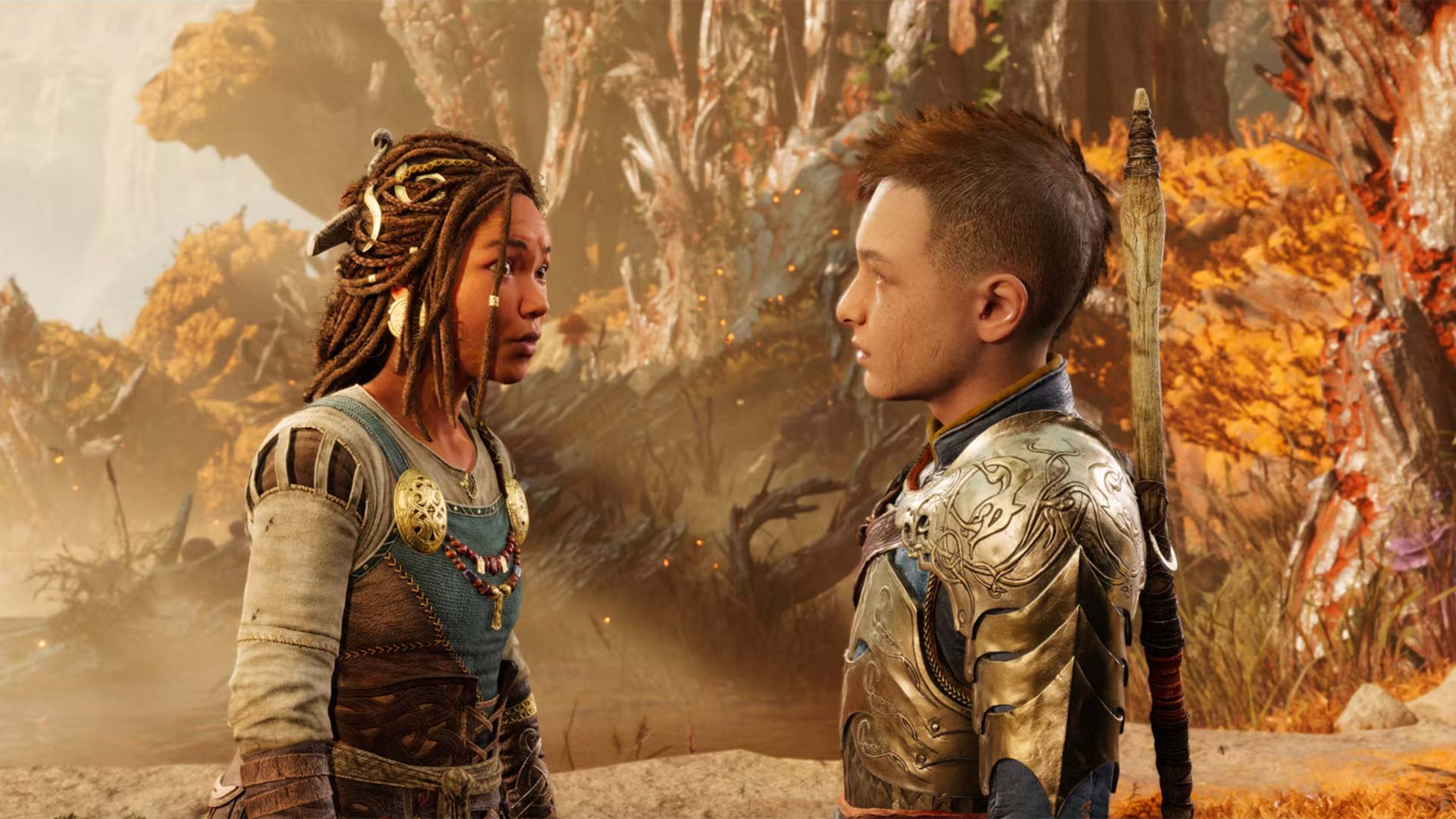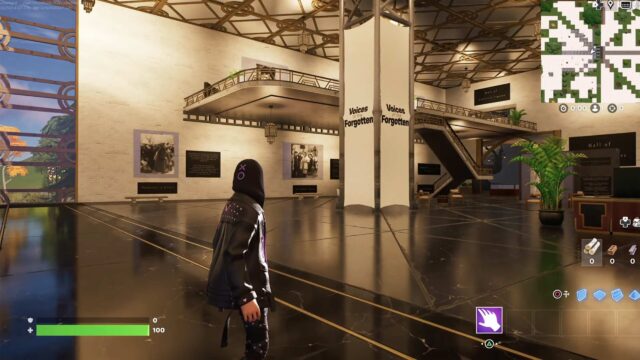Video games often get a bad rap.
Despite being an artistic medium that’s now enjoyed by roughly three billion people around the world, they’ve consistently been used as a scapegoat by politicians and other uninformed people to explain mass shootings, depression and other harmful instances. In fact, six in ten Americans believe video games contribute to violence, per the Pew Research Center, even though significant research over the years has disproven that.
That’s where Dr. Rachel Kowert comes in. As a globally recognized, Ottawa-based psychologist and the research director at the non-profit mental health-focused organization Take This, she’s made dispelling misconceptions surrounding video games a key part of her prolific career. It’s also the focus of her keynote at the Serious Play Conference, an annual gaming industry event that was held this month at the University of Toronto – Mississauga.

She opens her talk by rather astutely illustrating that video games are but the latest thing that society has grasped onto, with other forms of “moral panic” including the written language in 400 B.C., telephones in the 1800s and comic books in the 1950s. “The problem is that games have a history of moral panic. As a society, as human beings, we like to have nice, little, easy solutions to big, complex problems,” she says in an interview with MobileSyrup at Serious Play.
“We still see when there’s a tragic shooting, the headlines say ‘he played games,’ which you might as well have said he wore shoes; at this point, so many people play games. But the fact that we have this really ingrained narrative that hasn’t changed in the media for 50 years, I think, has really done humanity a disservice. And the way we see and understand games as tools and games as a massive form of media – it’s bigger than film, television and music combined, and that includes Taylor Swift. That’s saying something!”
To that point, her presentation at the conference aimed to highlight several of the ways in which games can actually benefit people. In her words, they’re making people “smarter, happier, kinder and more legendary.”
With respect to “smarter,” she notes how games present opportunities for both “unintentional learning” (i.e. Animal Crossing teaching about patience, capitalism, management skills and more) and “intentional learning” (ex. Fortnite having an in-game Holocaust museum). The latter is particularly notable, she says, because of the reach it can have. Where the real-life Martin Luther King Memorial in Washington has three million visitors annually, Fortnite’s Holocaust museum can reach many more millions of people – for free and at home, no less.
When it comes to happiness, Dr. Kowert notes that research shows how games can improve the moods of players, including a German study from December that examine how people who played Super Mario Odyssey lifted people’s spirits. She also notes that games can make people feel less lonely by bringing them together, which 52 percent of Canadians attested to in a 2023 Entertainment Software Association of Canada survey.
In terms of games promoting kindness, Dr. Kowert cites examples like Kind Words, in which you write friendly letters to real people. She adds that games are powerful tools for empathy, with titles like Depression Quest and Hellblade: Senua’s Sacrifice putting you in the shoes of characters with depression and psychosis, respectively. (In a slideshow, she shared some of the thank you letters that Hellblade developer Ninja Theory received for its sensitive handling of the subject matter.)
And finally, she posits that games make us more “legendary” by “revolutionizing” different sectors, from the economy (the industry generates about $250 billion USD/$340 billion CAD annually), environment (i.e. the UN reaching over 600 million people about eco-friendly practices through games and helping to plant over 2.5 million trees) and exercise (like Pokémon Go encouraging walking around in the real world to play).
“Video games are the most under-utilized and the most powerful tools in the 21st century,” she concludes in her talk.
Areas of (long overdue) improvement
Of course, Dr. Kowert is careful not to dismiss the legitimate issues surrounding gaming. In particular, she’s spent a great deal of time lately on combating toxicity in the video game sphere. It’s a long-running problem, to be sure, and one that’s become more prevalent in recent months amid an abhorrent targeted harassment campaign colloquially referred to as ‘Gamergate 2.’ It started in March after a group of gamers, rallied in no small part by a disgraced game designer turned grifter, went after an innocent Montreal-based consultancy firm called Sweet Baby over diverse characters. That abuse extended to other women and people of colour in the industry, including Dr. Kowert, who received hate mail and even death threats after Take This spoke out against the vitriol.

People got angry about characters like Angrboda, a young Black woman, in God of War: Ragnarök. (Image credit: PlayStation)
While the conversation eventually shifted away from Sweet Baby, it quickly pivoted to manufactured outrage over similar topics of diversity in gaming. As Kotaku points out, these so-called “controversies” have included everything from trans representation in Final Fantasy XIV and Call of Duty to the “attractiveness” of the lead character of Star Wars Outlaws. When asked if she has any takeaways on the whole “Gamergate 2” movement a few months later, Dr. Kowert laments that it exhibits little change from the original Gamergate scandals.
“I think the takeaway is that it hasn’t gone away, really. And I think a lot of people talked about the rise in [hate] in March like a ‘Gamergate 2,’ but really, the residuals and sentiments associated with Gamergate in the first place in 2014 have always been here. Sometimes they’re a bit lighter, sometimes they’re a bit louder, but it’s always been here,” she says. “And so I think that seeing it bubble back up to the surface in March really reiterated that for a lot of people who maybe aren’t as in the field as those at this conference are – those sentiments and communities are alive and well.”
Back in February, Dr. Kowert and her colleague, Dr. Elizabeth D. Kilmer, published a report for Take This outlining how the industry should push back against toxicity in gaming, which was recirculated amid the Sweet Baby incident. One of the main points they brought up was the need for game makers – as in the broader studios and publishers, not just individuals – to publicly condemn such bad behaviour. “Without an explicit statement from the studio that toxic, misogynistic behaviour was not welcome, the studio found that pro-Gamergate individuals assumed the studio’s game was a safe space for them to build community,” one developer told Take This.
Unfortunately, Dr. Kowert says she hasn’t seen much progress in that regard in the past few months, outside of one notable example. She points to Riot Games, the maker of Valorant, who came out in a big way against toxicity in its game in May. In a seven-and-a-half-minute video, studio head Anna Donlon acknowledged that Riot needs to do more to protect players from abuse and said those who are acting in such a way aren’t welcome in the Valorant community.
“I thought that that was really great. But the only reason that statement was made is because a really public, really viral clip went around of someone being harassed [with comments about rape] in their game. And I would really like to see more proactive and more cohesive, and, I want to say, alliance-based, industry-wide standards of making those similar sentiments,” said Dr. Kowert. “So I’m really happy Riot did that, but it’s sad that it really had to come to a tipping point. It wasn’t from the events of March. It wasn’t from the events 10 years ago. It was one specific viral kind of incident that led them to make that decision where we should just be setting those standards.”
Of course, the toxicity will surely only increase amid two particularly divisive major political events: the 2024 U.S. presidential election and Canadian federal election (set to take place on or before October 20th, 2025). To that point, Dr. Kowert recently shared a Video Games Industry Memo newsletter examining how politicians like U.S. presidential candidate Donald Trump are using the likes of the game streaming platform Kick to share extremist views to younger audiences.
Dr. Kowert says that gaming is an “untapped tool” to help educate younger players about politics, but it’s about doing so responsibly. “I think there’s a lot of discussions right now about how do we make these spaces safe for not just young people, but also for anybody who’s engaging in the space to make sure it’s not predatory, and that sort of stuff. There’s a lot to do in that space,” she said. “I think that any politician who is running for re-election — that is going to have to be part of what they’re thinking about for their platform because it is an ever-growing question of interest.”
She points to what U.S. representative Alexandria Ocasio-Cortez did in 2020 when she took part in popular Among Us play sessions with streamers. She would later do it again with Canadian NDP leader Jagmeet Singh. (Singh’s NDP also had an island in Animal Crossing: New Horizons that players could visit.) These initiatives weren’t spreading “extremist” views, but instead simply trying to, as Dr. Kowert notes, “engage” with them.
The NDP examples are also now more personally relevant to Dr. Kowert, who became a Canadian citizen earlier this year. “When I was being sworn in on Zoom because of COVID, I actually cried, which was so unexpected,” said the Texas native. “I feel really patriotic, seeing the flag and being part of Canadian culture. I just think it’s so welcoming and kind. And I feel very, very proud as a new Canadian.”
On the subject of being welcoming and kind, I concluded our chat by asking what she thinks the average person can do to help improve gaming for everyone. Even if we’re not big companies, surely there are things we can do to help in our own way. For Dr. Kowert, that comes back to something that colleague, journalist, activist and streamer Tanya “Cypheroftyr” DePass says about being “an active ally” when you witness toxicity.
“See something, say something. We know from the research that somebody saying something to stand up for in the digital space is actually the best way to extinguish the behaviour in the moment. But it only works if the person standing up is what we call an ‘equal social value.’ So if somebody who is a heterosexual male-sounding person is saying something awful to a female-sounding person, another male person saying something actually distinguishes that behaviour in the moment,” said Dr. Kowert.
“And I think that a lot of times we think ‘it’s happening on the internet, it doesn’t matter, I’m just gonna mind my own business.’ But actually, we are creating the culture. We are the purveyors of these cultures that we are engaged in, and we need to be active and make sure we set the boundaries and we set the standards for what we want and what we don’t want accepted in this space.”

While she notes the “top-down” of companies like Riot condemning bad actors is “really important,” it remains to be seen whether that will have an effect on gamers’ collective behaviours. In the meantime, she calls on people to speak out.
“If we did that on a mass scale, we could start to see shifts and what’s determined or what’s considered to be normal and acceptable in these spaces.”
This interview has been edited for language and clarity.
More information on Dr. Kowert’s work, including her research on the positive and negative elements of games, can be found here. One of her other ongoing projects is Psychgeist, a multimedia production studio that examines the science of games and pop culture. As part of that initiative, there have been Pyschgeist books published on The Mandalorian and The Witcher, with future entries in the series covering Bluey, The Umbrella Academy and Stranger Things.
Image credit: Epic Games
MobileSyrup may earn a commission from purchases made via our links, which helps fund the journalism we provide free on our website. These links do not influence our editorial content. Support us here.



![Transmisión en Canadá en Crave, Disney+ y Netflix [Sept. 2-8]](https://todaatecnologia.com/wp-content/uploads/2024/09/perfect-couple-nicole-kidman-scaled-238x178.jpg)
